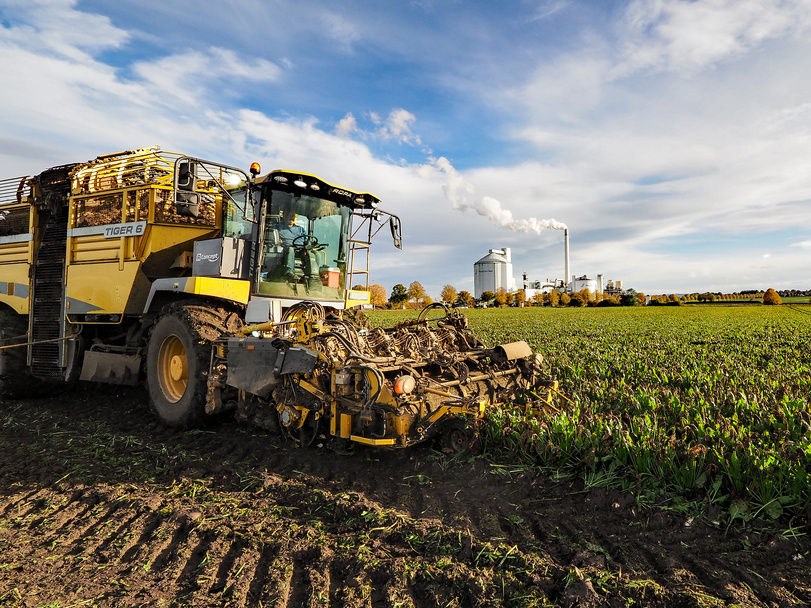Nordzucker starts the 2025/2026 campaign – factories ready for beet processing
Advertisement
Nordzucker will begin processing sugar beet for the 2025/2026 season at its European factories in early September. Processing is expected to continue until mid-January 2026.

Nordzucker AG
"The beets have grown well in many places and have developed well in most regions. The weather conditions until harvest are crucial for the further growth of the beets and, above all, for sugar formation. Regionally, there is also the risk of SBR/Stolbur spreading – transmitted by the Schilf-Glasflügelzikade*," explains Lars Gorissen, Chief Executive Officer at Nordzucker, looking ahead to the coming weeks.
Syndrome Basses Richesses (SBR) in combination with Stolbur can severely impair the processability and sugar content of sugar beets.
This year, the factory in Schladen, Lower Saxony, will begin the campaign on 3 September 2025, followed a few days later by the other Nordzucker Group sites in Germany, Denmark, Finland, Lithuania, Poland, Sweden and Slovakia. In Schladen, Germany, and Nykøbing, Denmark, organic beet will be processed first.
Factory maintenance – focus on modernisation, efficiency improvement and
decarbonisation
Nordzucker has made intensive use of the maintenance phase to service and further modernise its factories and their equipment. "Our investments in the factories follow a clear plan: we are increasing energy efficiency, modernising, automating and digitising our infrastructure, and also consistently focusing on decarbonising our production. This ensures that the campaign runs smoothly in the sites and ensures its future stability. In addition, as with all our campaigns, the work safety of our employees is our top priority," emphasises Alexander Godow, Chief Operating Officer at Nordzucker.
In recent months, beet washing facilities have been renewed in several factories, sugar houses have been modernised, and the existing infrastructure has been further adapted to new regulatory requirements. At the Clauen site, a new decanter ensures a more stable processing performance until the end of the campaign.
Danish sites rely on biogas from their own beet pulp for decarbonisation
In the Danish factories of Nordzucker Group, biogas from beet pulp will be used for energy production for the first time in the upcoming campaign. The company will supply this to a nearby biogas plant and, in return, use biomethane to decarbonise sugar production and incrementally reduce CO₂ emissions. This will enable the
company to gradually replace natural gas as a fossil fuel starting with this campaign. The plan is for both Danish sugar factories in Nykøbing and Nakskov to significantly reduce their carbon footprint by 2030 – a milestone for Nordzucker. The company plans to reduce its CO₂ emissions by 50 per cent by 2030 compared to the base year
2018 and to achieve CO₂ neutral production in its factories by 2050 at the latest. Nordzucker is currently investigating the use of biogas from its own beet pulp at other locations as well.
Decarbonisation begins in the field
"For us, sustainability begins in the field. We take a holistic view of our value chain – from the grower to the consumer," emphasises Lars Gorissen. Reducing CO₂ emissions in sugar beet cultivation is a key focus in this regard. Nordzucker has committed to specific FLAG* targets, which were confirmed by the Science Based Targets initiative in May 2025. The aim is to reduce CO₂ emissions in the field by 36 per cent. To this end, Nordzucker is testing, for example, a mineral nitrogen fertiliser that has a lower CO₂ footprint than conventional fertilisers. This was already tested in German farms last year and is now also being used in a pilot phase in Poland and Denmark. In addition, individual beet harvesters are being tested with HVO, a vegetable oil-based diesel substitute, and CO₂-reduced potash fertiliser.
*Pentastiridius leporinus
*FLAG – Forest (forestry), Land (land use) and Agriculture (agriculture)






























































